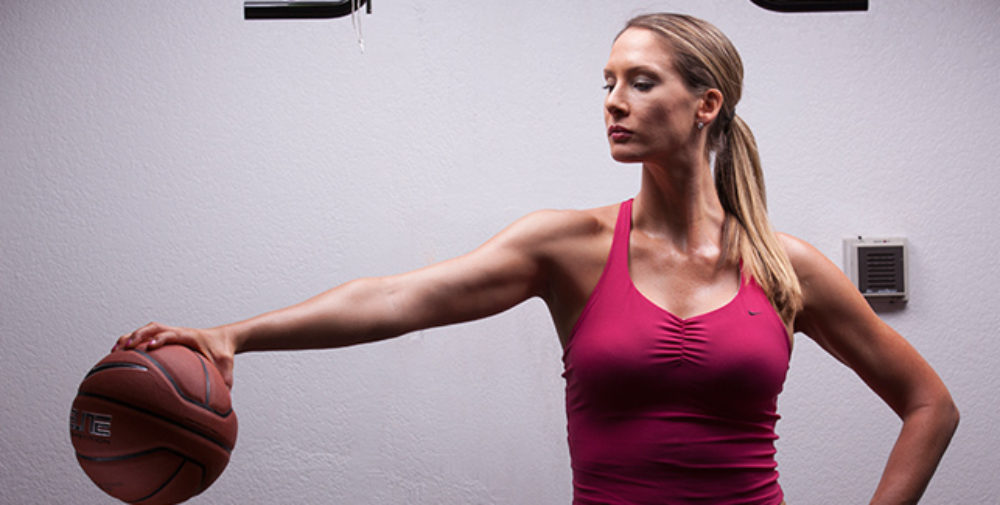Article Nutrition – Summer Pro League
http://www.summerproleague.com/article_carolyn_moos_nutrition.html
No Shortcuts
Professional athletes and agents want the same things. Athletes want to make a roster that has a solid record or projected high success, they want to play at a level that reflects reaching their full potential, obtain an extended contract, stay healthy, and have a prolonged career. Agents support and push to get all of the above. Why then would an elite athlete not take all steps necessary off the court to make the above true? These choices off the court include sports nutrition, strategic cross training and all lifestyle choices. One needs a formula to follow and the desire and motivation to follow that formula for all of the above to become a reality for the professional athlete.
Nutrition and everything you put in your body plays a strong role in mental and physical performance, lowering risk of injury and improving body composition (muscle to fat ratios). I am primarily focus on Nutrigenomics and studies that examine molecular relationships between nutrition and the response of genes, with the goal of understanding how changes in nutrition (exercise, stress reduction) can affect human genetic expression. I focus on glycemic index, macronutrient profiling, and body composition, while integrating bio/psycho/social aspects of lifestyle change. This article will be a brief overview of how sports nutrition can help elevate your game and your career as a professional athlete.
With all the hours spent on strategic cross training to help elevate your game, it is essential you fuel your body with what it needs to repair. All of those hours in the gym may be wasted if you are putting junk into your system. Now is a good time to address this common naïve myth: “I can eat whatever I want as I will burn it off in my workouts”- WRONG. If you eat 4,000 calories one way (certain macronutrients) you will add body fat not muscle and if you eat the same 4,000 in healthful planned macronutrients, you will build lean muscle. Energy in, energy out is not the whole story. You are what you eat and the RIGHT types of calories will build the body you need for your sport and for life.
The number of calories an athlete should consume in a day is dependent on a variety of factors including age, height, body composition, sex, weight, weight loss or leaning out goals, and number of calories burned per day during workouts. Calories-meals should be consumed every 2-3 hours with no exceptions or your risk blood glucose dips and poor mental and physical performance. Breakfast is a very important aspect of maintaining energy levels because it is the first meal you consume after a seven or eight period without caloric intake. Avoid caffeine and sugary drinks as they can cause dehydration, fluctuation in energy levels and blood glucose levels.
I specialize in macronutrient profiling which involves analyzing the ratio of proteins, carbohydrate and fats at each meal of the day. The largest part of an athlete’s diet should be carbohydrates, which are responsible for the body’s main energy source due to breakdown into glucose. Protein is also very important to the athlete because it works to build and repair muscle tissue; hence strategic consumption of a range of amino acids through food sources is essential for this repair. No more than 30 grams of protein should be consumed in a single meal as excess protein intake can lead to increased body fat if over consumed and it is also stressful on your kidneys. Healthy fats are also incorporated to provide your body essential nutrients. Unlike carbohydrates and proteins, it is not essential to replace fats used during exercise by consuming certain quantities or types of fat immediately following training or competition. Carbohydrates and proteins are the main priorities after exercising to replace, restore and replenish muscles. Fats and proteins cannot be metabolized for energy anaerobically, whereas carbohydrates are the macronutrient that can be metabolized anaerobically. Fat should be kept to a minimum for your post workout meal as they inhibit the rate of glucose absorption paired with amino acids from proteins. Fats are essentials nutrients and all your other meals should have adequate amounts of healthy sources of fat. A large range of fruits and vegetables should be consumed so you get all key vitamins and minerals. Eat as many varied colors as possible. Visit www.fitt4life.org or www.carolynmoos.com for sample power food lists.
